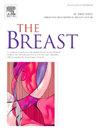Biomarkers of response and resistance to immune checkpoint inhibitors in breast cancer
IF 7.9
2区 医学
Q1 OBSTETRICS & GYNECOLOGY
引用次数: 0
Abstract
Immune checkpoint inhibitors (ICIs) have recently been approved in subsets of patients with breast cancer (BC). Currently, programmed death ligand 1 (PD-L1) immunohistochemistry is used as a biomarker of response for metastatic triple negative breast cancer (TNBC). Other tumor-agnostic indications in metastatic BC include high tumor mutational burden and mismatch repair deficiency. In early TNBC, the ICI pembrolizumab is routinely added to neoadjuvant chemotherapy, yet no biomarker is currently available to predict response or resistance. Further, while luminal BC is often thought to be immune-depleted, preliminary efficacy data in early-stage disease suggests that the addition of ICIs to neoadjuvant chemotherapy can significantly improve rates of pathological complete response. However, not all patients will benefit from ICI treatment and it also comes with significant treatment toxicities. This review will describe biomarkers of response and resistance to ICIs in BC. These currently include tumor infiltrating lymphocytes, homologous recombination deficiency, CD274 gain or amplification, estrogen receptor and/or progesterone receptor expression, more precise tumoral immune characterization, gene expression analysis, and the T-cell receptor repertoire. Although still investigational, these approaches hold the potential to advance personalized medicine by tailoring the use of ICIs to BC patients who will benefit.
乳腺癌对免疫检查点抑制剂的反应和抵抗的生物标志物
免疫检查点抑制剂(ICIs)最近被批准用于乳腺癌(BC)患者亚群。目前,程序性死亡配体1 (PD-L1)免疫组织化学被用作转移性三阴性乳腺癌(TNBC)反应的生物标志物。转移性BC的其他肿瘤不确定指征包括高肿瘤突变负担和错配修复缺陷。在早期TNBC中,ICI派姆单抗常规添加到新辅助化疗中,但目前尚无生物标志物可用于预测反应或耐药。此外,虽然管腔BC通常被认为是免疫衰竭的,但早期疾病的初步疗效数据表明,在新辅助化疗中添加ICIs可以显著提高病理完全缓解率。然而,并不是所有的患者都能从ICI治疗中受益,而且它也有明显的治疗毒性。这篇综述将描述BC患者对ICIs的反应和耐药的生物标志物。目前这些包括肿瘤浸润淋巴细胞、同源重组缺陷、CD274获得或扩增、雌激素受体和/或孕激素受体表达、更精确的肿瘤免疫表征、基因表达分析和t细胞受体库。尽管仍处于研究阶段,但这些方法有可能通过针对BC患者量身定制ici的使用来推进个性化医疗。
本文章由计算机程序翻译,如有差异,请以英文原文为准。
求助全文
约1分钟内获得全文
求助全文
来源期刊

Breast
医学-妇产科学
CiteScore
8.70
自引率
2.60%
发文量
165
审稿时长
59 days
期刊介绍:
The Breast is an international, multidisciplinary journal for researchers and clinicians, which focuses on translational and clinical research for the advancement of breast cancer prevention, diagnosis and treatment of all stages.
 求助内容:
求助内容: 应助结果提醒方式:
应助结果提醒方式:


